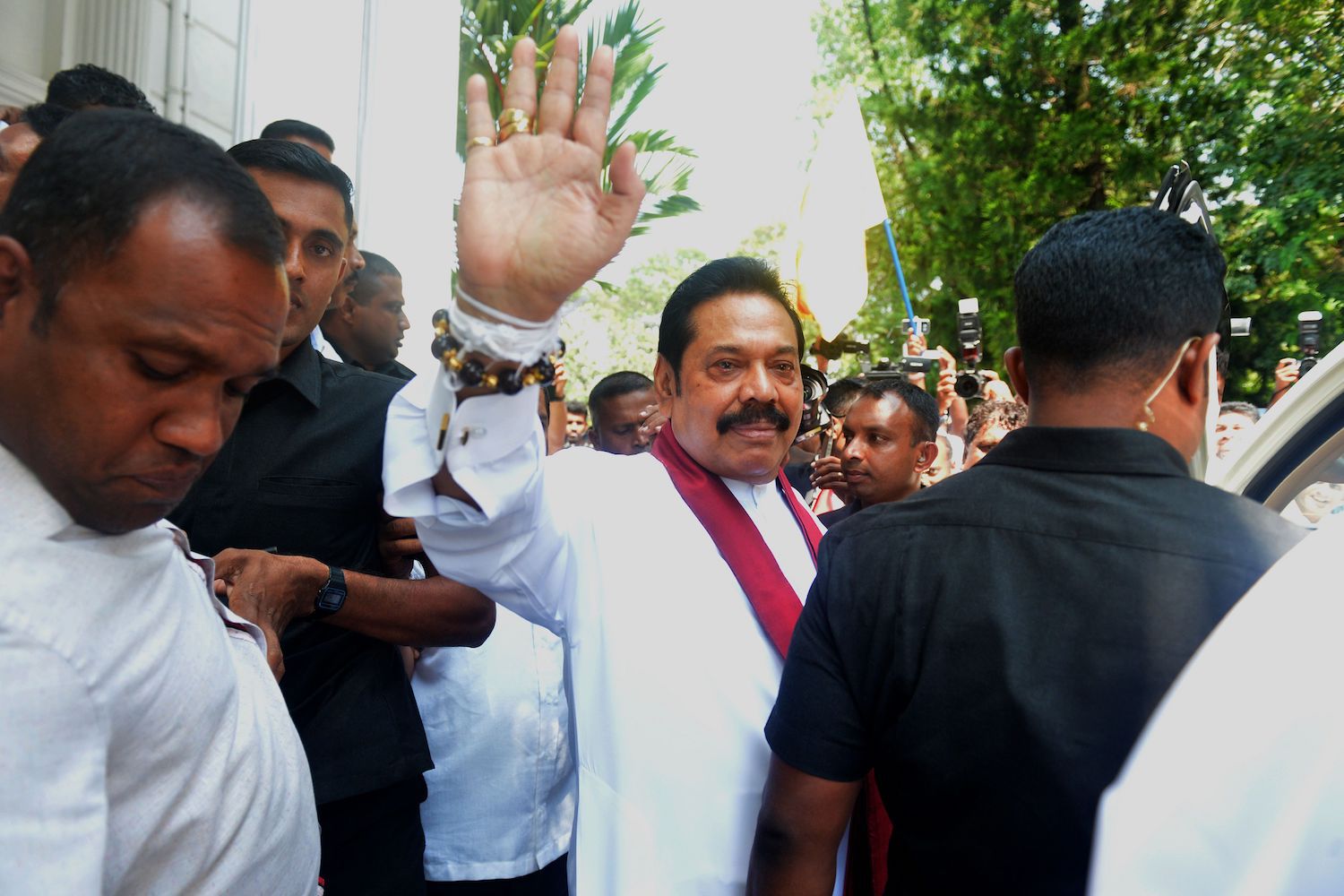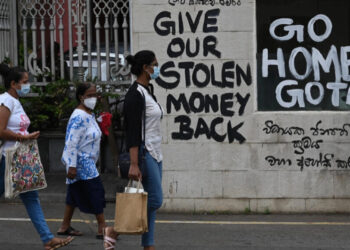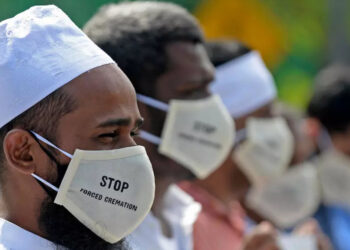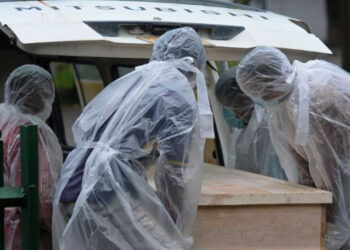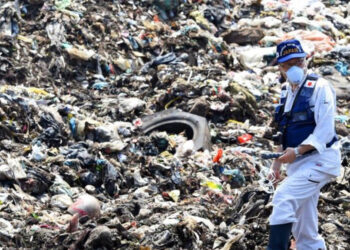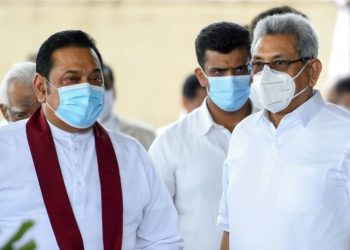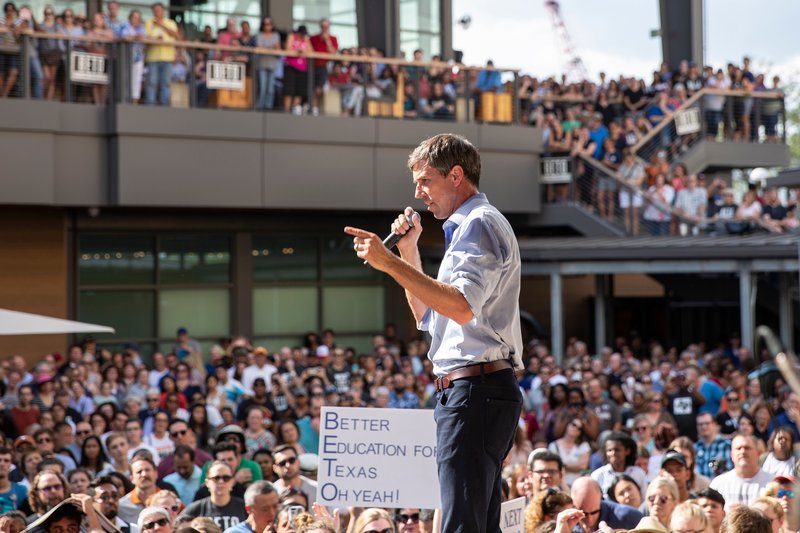“Whose power is this? Mahinda’s power!”
With these chants, thousands of men and women from around Sri Lanka descended on Battaramulla, a suburb of the capital city of Colombo, on Monday to rally in support of former President Mahinda Rajapaksa.
On October 26, President Maithripala Sirisena sacked Prime Minister Ranil Wickremesinghe and appointed Rajapaksa in his place. Since then, the island nation has been engulfed in what has been described as a “constitutional crisis.”
Wickremesinghe considers his dismissal illegal and refuses to leave his official residence. He supported Sirisena three years ago but the two men have gradually drifted apart, leading to the “shock” sacking.
Former Chairman of Sri Lanka’s Securities and Exchange Commission Nalaka Godahewa told The Globe Post, however, that Sirisena’s decision to appoint Rajapaksa was not such a surprise move as it may seem after all.
“We could clearly see buildup during the last two years or so. The president’s thinking and the thinking of the former government led by Mr. Ranil Wickremesinghe was not in line. There were disputes between them, so we could clearly see the buildup,” he said.
Since 2015, the economy of the country has been on the decline. The growth rate, which was hovering around 7-8 percent, has come down gradually to about 3.5 percent, Godahewa explained. At the same time, debts, taxes and the cost of living have gone up, while currency has devalued.
“Normally, when there is a crisis like that, there was a provision in the previous Constitution: the president had the power to dissolve the parliament and call for a fresh election,” Godahewa said.
“However, as a result of a constitutional amendment which was introduced in 2015, the current president is not allowed to dissolve parliament for 4.5 years, so I presume he had no option rather than changing the prime minister with existing parliament when he realized it was a no go situation any further.”
During the Monday rally, Sirisena explained his political decision.
“I ousted a vision that is incompatible with our local culture and values, and that works according to foreign agendas,” he said. “For the past three-and-a-half years, poor people were suppressed by Ranil Wickremesinghe’s economic and political vision. Local thoughts were rejected and an extreme neo-liberal form of governance was carried out.”
Rajapaksa added that he and President Sirisena “united to work for the people,” referring to their previous rivalry when Sirisena defeated him for the presidency in 2015.
President Sirisena said it all. Bye bye Mr Wickremasinghe's third tenure as PM. Enough damage has been done to this country though the failed Yahapalana promise. Country needs a strong government with a fresh mandate from people. #SriLanka #lka
— Dr.NalakaGodahewa(PhD,MBA, BSc.Eng,LLB, FCIM,FCMA) (@GodahewaNalaka) November 6, 2018
According to Godahewa, the manner in which the change in the government was handled was constitutional.
He said that when the 19th Amendment, which envisages the dilution of many powers of Executive Presidency, was introduced, it included several new rules, like the one that the president can’t dissolve parliament for 4.5 years.
“Everybody who goes through this Constitution, which is in English, doesn’t see the provision for the president to remove the prime minister. However, what the foreign media misses out is that the Constitution is in three languages. It is in English, Sinhala, and Tamil,” Godahewa said.
Sinhala is spoken by the majority of people in Sri Lanka. And according to the country’s laws, if an interpretation is possible, at the Supreme Court the Sinhala version prevails.
“When you look at the Sinhala version of the Constitution, the Sinhala version and the English version don’t match. The Sinhala version still says the president can remove the prime minister,” Godahewa stated, noting that the mismatch took place due to the rush with which the 19th Amendment was passed.
To end the standoff, Wickremesinghe has asked lawmakers to vote to decide between him and Rajapaksa, but parliament has been suspended since his sacking.
“If I win… [Rajapaksa] must stand down. If he wins, I will leave Temple Trees [residence] and move away,” Wickremesinghe told AFP on Friday.
Unite to defend our constitution and our rights. pic.twitter.com/EwIieqMg2y
— Ranil Wickremesinghe (@RW_UNP) October 30, 2018
Parliament’s speaker Karu Jayasuriya said Monday he would not recognize Rajapaksa as prime minister just yet.
“Until the new faction is able to prove a majority in parliament, I will recognize the situation that prevailed prior to October 26,” Jayasuriya said.
Sirisena announced on Sunday that parliament would reconvene on November 14. Critics have said that the delay was created to give Rajapaksa time to tempt defectors from other parties and prove his majority.
According to Godahewa, parliament was originally supposed to be summoned again on November 5, but 10 extra days were needed by the new government to prepare budget proposals.
“Obviously, no new government can come up with a budget proposal within a week. So they needed time to sit and work on it. That’s why they asked for an additional 10 days,” he said.
In our journey towards becoming a truly powerful Sri Lanka, I will not take my steps back, despite challenges. Let's protect and build our country together. #JanaMahimaya pic.twitter.com/UR0Qw8gb10
— Maithripala Sirisena (@MaithripalaS) November 5, 2018
As for the confidence vote, it is unlikely to take place the day Sri Lankan parliament goes into session.
Once the parliament reconvenes, “the only thing that can happen is the president’s address,” Godahewa said. “If somebody wants to go for a vote of no confidence, they have to start a proposal for that. It has to be submitted, it has to be accepted by the Speaker, and a date must be given.”
According to Godahewa, “the best thing” that can happen to Wickremesinghe, once the date is set, is that he manages to defeat the current Rajapaksa government. After that, however, the president will have to appoint a new prime minister – an individual he thinks commands the majority.
“It is president’s opinion that matters,” Godahewa underscored. “But there is no guarantee that the defeat of the Rajapaksa government would automatically bring back Mr. Wickremesinghe.”
“In Sri Lanka, nobody currently bothers about this [government] change. Generally, people are happy, because people were suffering so much due to economic hardships during the past two years, and also the way the government was functioning,” he added, noting that the mood was reflected in the last provincial council election held on February 10. At the time, 52 percent of the voters supporting either Mr. Rajapaksa’s or President Sirisena’s party.
“Mr. Ranil Wickremesinghe, who claims that he is still the prime minister, got only 29 percent of the vote,” Godahewa said. “What should happen now is the parliament has to be dissolved. That is the wish of every Sri Lankan in this country…Go for a fresh election. Then, the people of the country can select their rightful leaders in the most Democratic manner. And who is preventing that? Mr. Ranil Wickremesinghe and his party. The current government will be very happy to go for election tomorrow, if the opposition agrees.”
Rajapaksa is often seen as a popular but polarizing figure. In 2009, after a significant military effort against the Liberation Tigers of Tamil Eelam (LTTE), an ethnic secessionist terrorist organization, his government ended a long and bloody civil war.
The conflict that lasted for more than 25 years and claimed some 100,000 lives resulted in LTTE’s defeat.
The Tamil Tigers were the first terrorist organization to successfully form a fully functioning military. They pioneered the use of suicide vests and belts, perfecting the use of suicide bombers.
In the aftermath of the war, allegations of war crimes committed by both the Sri Lankan military and the LTTE appeared, including claims of attacks against civilians and civilian buildings, executions of combatants, and enforced disappearances. Rajapaksa’s administration found itself at odds with the United Nations and the West over human rights issues.
Some advocacy groups have voiced concerns that the latest change in the government could erode new improvements in civil liberties.
“These improvements that some critics are talking about are only on paper, but on the ground, those improvements are not there,” Godahewa argued. “If you look at last four years, the economy deteriorated, the crimes went up, underworld stood up again. Development was halted, the political situation deteriorated.”
Godahewa noted that the law and order can be brought back by a stable government. According to him, Sri Lanka has already started seeing positive results after the latest government shift.
“We see a sharp rise in the stock market. Colombo stock market, which was on a continuous decline, took a positive turn and did extremely well during the last one week. That shows the local business community and the local investors have suddenly woken up and they are confident that the new government would deliver better results,” he said.
My sincere appreciation for everyone who came to the “Ratama Rakina Jana Mahimaya” rally in Battaramulla earlier today. pic.twitter.com/NtDG1XJeuc
— Mahinda Rajapaksa (@PresRajapaksa) November 5, 2018
When it comes to foreign investments, the picture is more complicated. Moody’s ratings agency has warned that the political deadlock could undermine investor confidence, lead to policy uncertainty and prompt capital outflows.
“If you look at the foreign investors, naturally they would be more cautious because they will see uncertainty, they see there is some kind of a constitutional deadlock, they see two prime ministers in the country – one official and one still saying that he is the prime minister. So foreign investors will take a little while to accept that the situation is normal,” Godahewa said.
At the same time, he urged the international community to persuade the opposition to support a new election.
“Instead of supporting the current government, or the former government talk about the Constitution, please request all parties to go for election. If there is unrest, if there are issues in the country, the best thing is to go for election and ask for people’s mandate.”


